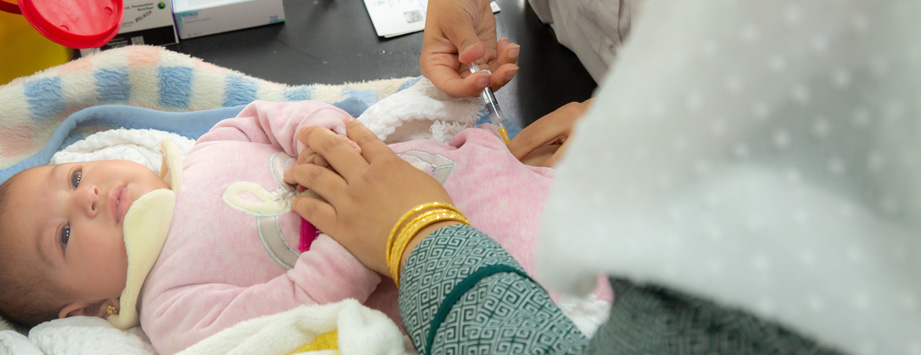Who we are
What we do
Under the strong leadership of the Ministry of Health WHO Jordan supported:
Establishment of the baseline on all components of the National EPI
WHO conducted comprehensive EPI review, Data Quality Self-Assessment, Effective Vaccine Management Assessment to identify key gaps in the immunization programme with two of them conducted for the first time in Jordan.
Strengthening management function at the National EPI
WHO developed organogram for the National EPI, terms of reference for the staff and distribution of responsibilities.
Procurement of the routine vaccines and vaccine procurement modernization
WHO procured routine vaccines for 20% of the infant population over the last two years and working on the vaccine procurement modernization to enable access to the competitive international procurement.
Provision of vehicles, cold chain equipment and IT equipment, improvement of vaccine management
Continuous improvement plan has been developed and national logistics working group established, vehicles, cold chain equipment and IT equipment procured
Capacity building of the national immunization staff
Workshops were conducted for the storekeepers and surveillance officers; vaccinator’s manual was developed for the training of vaccinators.
Increase awareness and reduce hesitancy surrounding immunization
National communication strategy for immunization has been developed and is being implemented.










